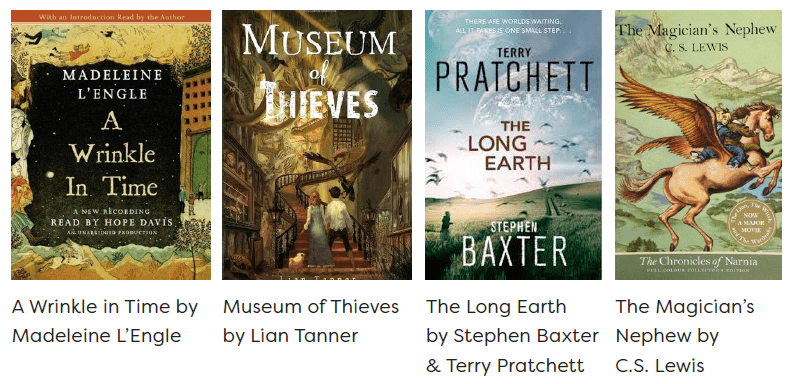Conversation Starters
Sometimes, starting a conversation with your child may feel like pulling teeth. Still, it is important to not let that initial resistance stop your efforts.
Below are 3 simple conversations starters you can try at your next meal.
“Tell me one positive thing that happened in your day.”
This gives your child something specific in their day to focus on and avoids the one word answer the general “How was your day?” can yield. Be sure to pay attention as your child recounts their experience and ask follow up questions.
“What are you looking forward to at school tomorrow?”
Again, the goal here is to get your child to give more than one word answers. In the event that you do get a one word answer, ask for more information, like why are they looking forward to a particular lesson or activity.
“Do you have any activities planned with your friends this week/weekend?”
Asking this question is not only a great way to show interest in your child’s social life, but it will give them the chance to ask permission to attend an event or participate in an activity with their friends. This can help you avoid being caught off guard by requests later on and give you an opportunity to ask any necessary questions.
Before engaging in any conversation, make sure you pay close attention to any cues or signals your child’s behavior may indicate. For instance, if your child seems down or discouraged it may be more appropriate to ask “Is there something you would like to share with me about your day?” instead of the above suggestions. No matter how you start a conversation with your child, listening and responding appropriately is key. With consistency and time, your child will feel comfortable communicating with you freely and without prompting.
What are Your Child’s Passions?
Children today face challenges that were unheard of when many of us were younger.
Because of this, it is much easier for students to become distracted and lose sight of their academic and personal goals.
Identifying your child’s passion is a great way to help them fight the distractions presented by obstacles they may face. Being passionate about something, whether it be a hobby or a cause, can give your child a reason to push through any struggle or challenge in order to pursue their goals. Passions give children something concrete to focus on and will prevent them from becoming easily sidetracked.
What are Their Skills?
While it is true that we are not always skilled in the areas we are passionate about, it is much easier for a child to become passionate about something they do well. Pay close attention to the areas where your child thrives. Are they good writers? Do they seem musically gifted? Recognizing the skills and talents your child has will help you identify various activities or hobbies that you can direct them towards.
It’s also important to make sure your child enjoys any hobbies or extracurricular activities they pursue. Even if they are good at it, it won’t give them drive if they do not enjoy what they do. While skills are helpful, enjoyment is a requirement in order to build true passion.
Take Action
Once you help your child identify potential outlets for their passion, do your best to help them act on it. If a child is not able to nurture their passions, they will eventually lose their desire to pursue them which can have a spiraling effect on their overall outlook. Should a program be out of reach do to financial reasons, look for ways to get assistance. You can always reach out to our staff for help finding resources that will allow your child to pursue activities that may interest them. No matter the obstacles you see, let nothing stop you from helping your child fulfill their passions.
Springtime Reads

Encourage your child to settle in for some quality reading this spring break. Below are some of the top recommendations from our staff.
A Wrinkle in Time by Madeleine L’Engle
While you have probably heard about the movie, this science fiction novel should not be overlooked for a good read. Aside from giving readers the chance to take a trip into a fantasy world, A Wrinkle in TIme does a wonderful job of handling concepts that many young adults are grappling with at this age, such as death, social conformity, and personal truth.
Museum of Thieves by Lian Tanner
This first entry into the Keepers trilogy provides another thrilling read with a strong female lead. Stifled in the oppressive city of Jewel, Goldie decides to run away. She ends up in the mysterious Museum of Dunt, filled with shifting rooms that hold many secrets and great powers.
As the mysteries begin to unravel, Goldie decides to take action and protect her city from the destructive powers at play.
The Long Earth by Stephen Baxter and Terry Pratchett
A novel for the more advanced reader, The Long Earth is the first part of a 5 book series that follows Joshua Valiente as he embarks on a journey through the long Earth with his human AI companion, Lobsang. Students who enjoy science fiction will appreciate the concept of humans having the ability to step through different Earths, each one unique from the last.
The Magician’s Nephew by C.S. Lewis
If your child has read The Lion the Witch and the Wardrobe, they are sure to love the first installment in the Narnia series. When Digory and Polly get transported to a strange world filled with ruins, they have no idea what course their lives have taken. From magical creatures to evil witches, your child will get lost in this world of fantasy along with these characters. The Magician’s Nephew also reveals how Narnia came into existence and delves deeper into the origins of the White Witch and Aslan.
Teach Social Media Safety
Like anything, social media can be a force for good as long as it is used safely. Teaching your kids how to be safe on social websites is not just a good idea, it’s a necessity.
Social Media is Not Bad
There are many people who put an outright ban on all social media in their homes as a way to protect their children. The problem with this is that there are so many ways and methods of getting on social media that a ban is both hard to enforce outside the home and can actually cause more harm than good. If your child knows social media is banned, they may simply create an online profile that you do not know about or have any way of monitoring, placing them in greater harm.
The reality is that social media has just as many benefits as it does dangers. Kids are able to connect with others who share their interests. This can prevent them from feeling alone and give them a place they can express themselves without fear. Social media also allows more youth participation in social and political discussions, allowing them to be more aware of what is going on in the world around them.
Rules are Not An Invasion of Privacy
On the other hand, you may be a parent who refrains from setting rules on social media use because you do not want to take away your child’s privacy. While it is important to let your child have their space, it’s also necessary to remember that establishing rules is necessary to protect your child.
Additionally, as various news stories have shown, privacy is not a guarantee when online, even for adults. There is always a chance that strangers will be able to see information or posts made by your child. By setting rules, you ensure that you know what information is being shown and who is seeing it.
Trust but Verify
Knowing who your child is talking to is just as important as knowing what they are saying. While it is important to build trust with your child and encourage them to talk to you, periodically verifying who they are communicating with is necessary to prevent improper behavior. This is particularly important if you notice something off about your child’s behavior or if they suddenly become withdrawn. Remaining watchful and communicating with your child will go along way to keeping them safe on social media.
Summit is Better: Empowerment

At Summit Academy, empowerment isn’t just a buzzword; it’s a promise. As the school of choice, empowering all members of our family is the only way we can help our students secure a promising future.
No Limits on Potential
Individualized learning gives students the power to get the most out of their education. Instead of setting the bar for them, our students are not limited by cookie cutter curriculum or a one size fits all approach to learning. As a student of Summit Academy, your child is able to choose the best path for them to achieve their goals. When combined with our advanced resources and dedicated staff, students are empowered to be their best self.
The Freedom to Teach
The best teachers are the ones who are able to personalize their teaching methods and connect with their students. Our teachers are empowered by their freedom to create curriculum based on their unique styles of teaching and the needs of their students. Though they are guided by school requirements, our teachers have the ability to focus more on the “what” of teaching without being told “how” to do it. Teacher empowerment is what paves the way for new classes and activities to be offered to our students. Ultimately, empowered teachers are what helps our schools to continually grow and improve.
Power to the Parents
Empowering you with the ability to be directly involved in your child’s education is extremely important to our staff. We not only want you to be aware of what goes on at our schools, we want you to be apart of your child’s experience and participate as much as you are able. Your participation is what encourages your child to be successful and it allows you to work with our teachers as we all work towards the same goal: preparing your child for a rewarding college career.
